
Luxembourg City: The Jewel of Europe
Luxembourg City, the capital of Luxembourg, is a captivating blend of old-world charm and modern sophistication. Nestled amidst deep gorges and lush green landscapes, this city offers a picturesque setting that feels like a scene from a fairy tale. The old quarter, a UNESCO World Heritage site, boasts cobblestone streets, ancient fortifications, and magnificent medieval architecture. The Grand Ducal Palace and Notre-Dame Cathedral are must-visit landmarks that provide a glimpse into the city's rich history. Despite its small size, Luxembourg City is a cultural hub with numerous museums, art galleries, and theaters. The Mudam, or Museum of Modern Art, showcases contemporary works in a striking building designed by I.M. Pei. For history buffs, the National Museum of History and Art offers a comprehensive look at the city's past. The city's vibrant culinary scene is another highlight, with a wide range of restaurants offering everything from traditional Luxembourgish dishes to international cuisine. Luxembourg City is also known for its green spaces. The Pétrusse Valley and the lush parks that dot the city make it an ideal destination for nature lovers. Walking or biking along the scenic trails provides a refreshing escape from the urban hustle and bustle. With its blend of historical landmarks, cultural attractions, and natural beauty, Luxembourg City promises an unforgettable experience for every traveler.
Local tips in Luxembourg City
- Visit the Bock Casemates for an underground tour of the city's ancient fortifications.
- Take a scenic walk through the Pétrusse Valley for breathtaking views and lush greenery.
- Try traditional Luxembourgish dishes like Judd mat Gaardebounen (smoked pork with beans) at local restaurants.
- Use the public transport system, which is free throughout the country, to explore different parts of the city.
- Don't miss the weekly market at Place Guillaume II for local produce and artisanal goods.
- Opt for a guided tour to learn more about the city's rich history and hidden gems.
Neighbourhoods in Luxembourg City
Luxembourg City: The Jewel of Europe
Luxembourg City, the capital of Luxembourg, is a captivating blend of old-world charm and modern sophistication. Nestled amidst deep gorges and lush green landscapes, this city offers a picturesque setting that feels like a scene from a fairy tale. The old quarter, a UNESCO World Heritage site, boasts cobblestone streets, ancient fortifications, and magnificent medieval architecture. The Grand Ducal Palace and Notre-Dame Cathedral are must-visit landmarks that provide a glimpse into the city's rich history. Despite its small size, Luxembourg City is a cultural hub with numerous museums, art galleries, and theaters. The Mudam, or Museum of Modern Art, showcases contemporary works in a striking building designed by I.M. Pei. For history buffs, the National Museum of History and Art offers a comprehensive look at the city's past. The city's vibrant culinary scene is another highlight, with a wide range of restaurants offering everything from traditional Luxembourgish dishes to international cuisine. Luxembourg City is also known for its green spaces. The Pétrusse Valley and the lush parks that dot the city make it an ideal destination for nature lovers. Walking or biking along the scenic trails provides a refreshing escape from the urban hustle and bustle. With its blend of historical landmarks, cultural attractions, and natural beauty, Luxembourg City promises an unforgettable experience for every traveler.
When is the best time to go to Luxembourg City?
Iconic landmarks you can’t miss
Bock Casemates
Discover the Bock Casemates, a UNESCO World Heritage site in Luxembourg City, showcasing remarkable historical fortifications and stunning views.
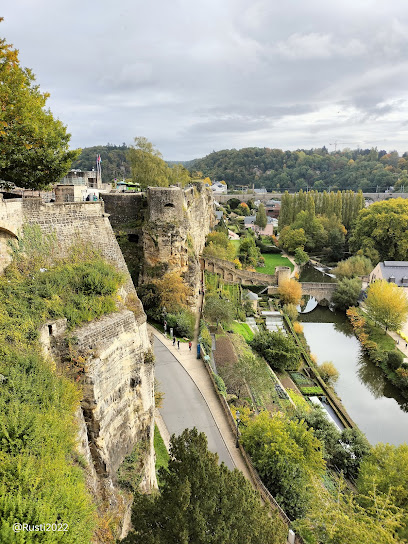
Pont Adolphe
Explore the stunning architecture and breathtaking views at Pont Adolphe, an iconic bridge in Luxembourg City that connects history with modernity.
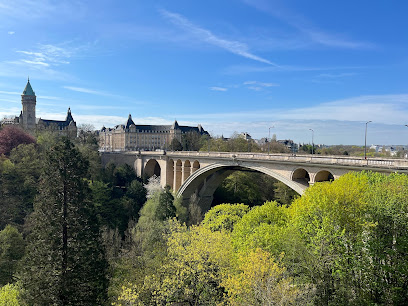
Panoramic Elevator of the Pfaffenthal
Experience breathtaking views of Luxembourg City from the Panoramic Elevator of the Pfaffenthal, a unique blend of engineering and stunning landscapes.
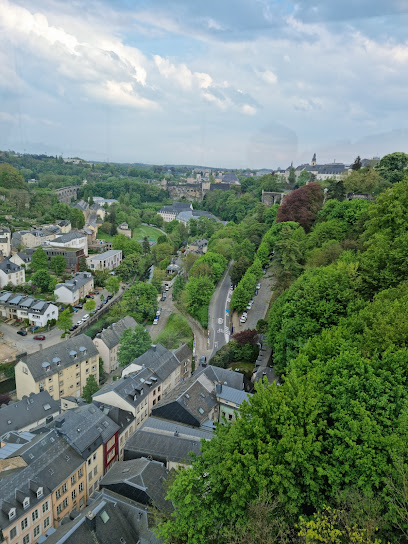
Municipal park of Luxembourg
Explore the lush landscapes and serene ambiance of the Municipal Park of Luxembourg, a hidden gem in the heart of the city perfect for relaxation and recreation.
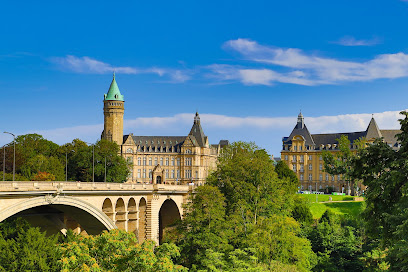
Cathédrale Notre-Dame
Explore the breathtaking Cathédrale Notre-Dame, a Gothic masterpiece in Luxembourg City, rich in history and architectural beauty.
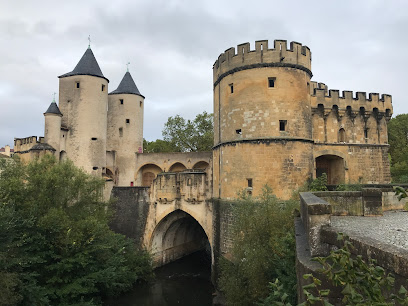
Palais Grand-Ducal
Discover the elegance of the Palais Grand-Ducal, a historical landmark in Luxembourg City that reflects the country's royal heritage and architectural beauty.
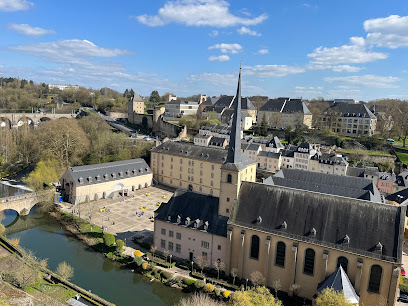
William Square
Discover the historic charm and vibrant atmosphere of William Square in the heart of Luxembourg City, a must-see for every traveler.
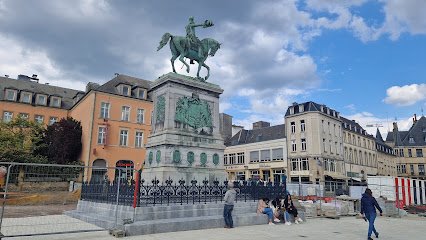
Monument of Remembrance
Discover the poignant beauty of the Monument of Remembrance in Luxembourg City, a symbol of resilience and tribute to those who sacrificed for freedom.
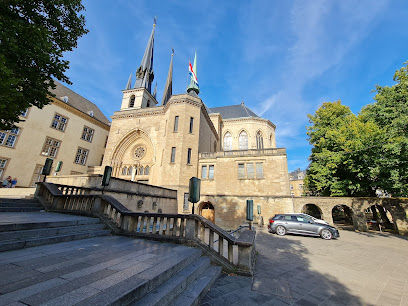
Place de la Constitution
Discover the historical charm and breathtaking views at Place de la Constitution in Luxembourg City, a cultural gem for every traveler.
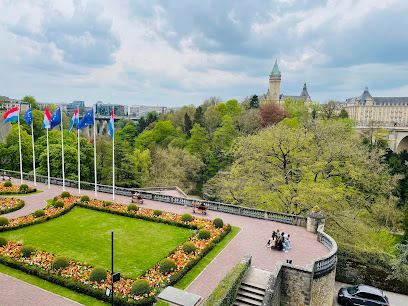
Neumünster Abbey
Explore Neumünster Abbey, a stunning cultural center in Luxembourg, blending history with modern art and vibrant events in a scenic riverside setting.
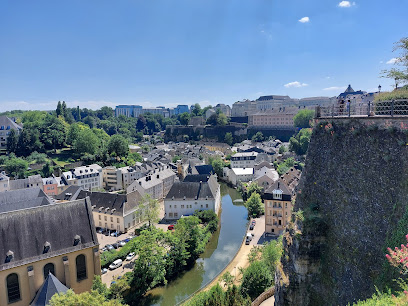
Fort Thüngen
Discover the historical charm and stunning vistas of Fort Thüngen, Luxembourg's iconic fortress, where history meets breathtaking scenery.
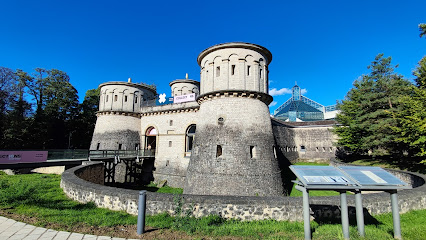
National Art and History Museum
Explore the National Art and History Museum in Luxembourg, where art and history converge in a captivating cultural journey.
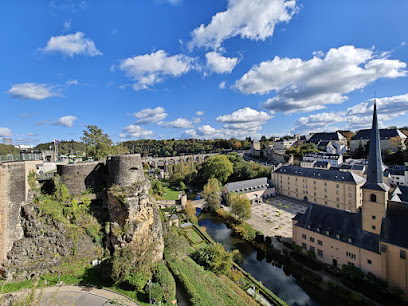
La Passerelle
Experience the breathtaking views and architectural splendor of La Passerelle, Luxembourg's iconic bridge connecting the past and present.
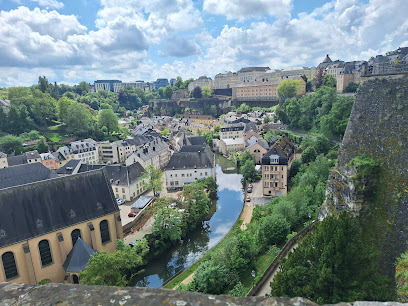
Luxembourg City History Museum
Uncover centuries of history and culture at the Luxembourg City History Museum, a captivating journey through time located in the heart of the city.
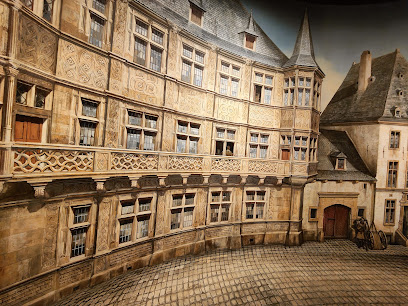
Luxembourg City Tourist Office
Discover the heart of Luxembourg City at the Luxembourg City Tourist Office, your one-stop destination for information, tours, and cultural insights.
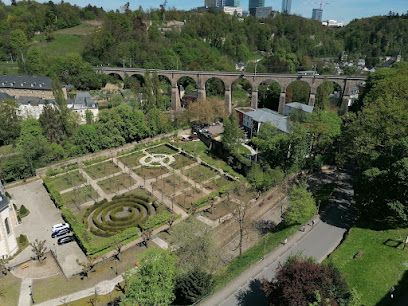
Unmissable attractions to see
Vianden Castle
Explore Vianden Castle, a stunning medieval fortress in Luxembourg, rich in history and offering breathtaking views of the surrounding countryside.
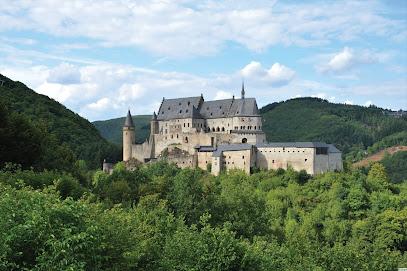
Trier Saint Peter's Cathedral
Explore the historical grandeur of Trier Saint Peter's Cathedral, a stunning blend of architectural styles and rich heritage in Germany's oldest city.
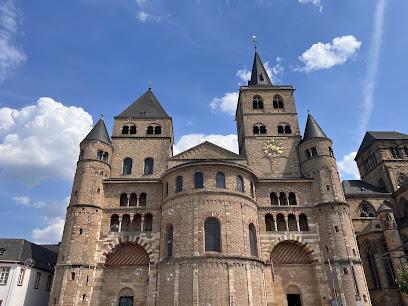
Casemates du Bock
Discover the Casemates du Bock, a UNESCO World Heritage site in Luxembourg, showcasing a fascinating history and breathtaking views of the cityscape.
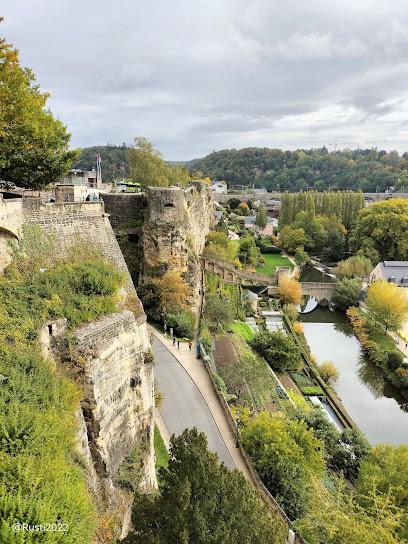
Pont Adolphe
Discover the stunning Pont Adolphe, an architectural gem in Luxembourg City, offering breathtaking views and a glimpse into the city's rich history.
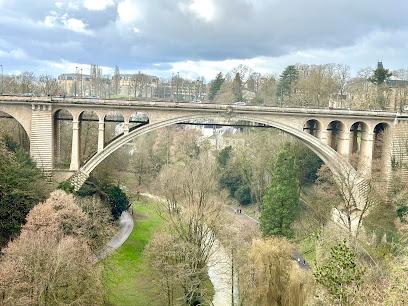
Panoramic Elevator of the Pfaffenthal
Discover Luxembourg City from new heights at the Panoramic Elevator of the Pfaffenthal, offering stunning views and convenient access to the city's charm.
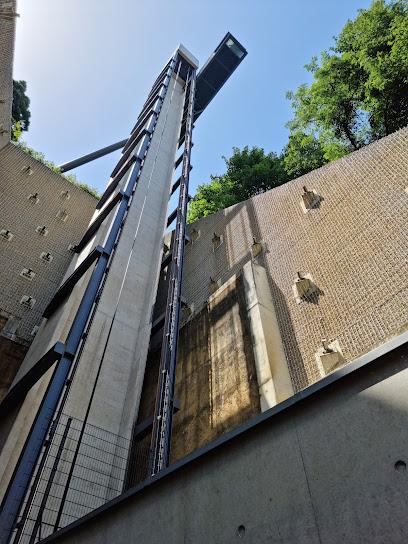
Trier Amphitheater
Explore the Trier Amphitheater, a stunning Roman relic in Germany's oldest city, where history comes alive amid breathtaking ancient architecture.
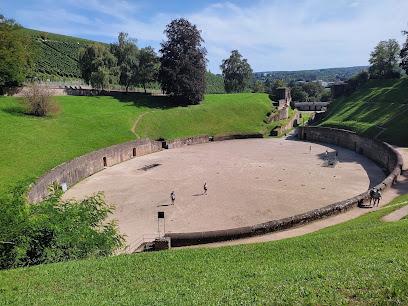
Cathédrale Notre-Dame
Explore the stunning Cathédrale Notre-Dame, a historical and architectural marvel in Luxembourg, featuring breathtaking stained glass and rich cultural history.
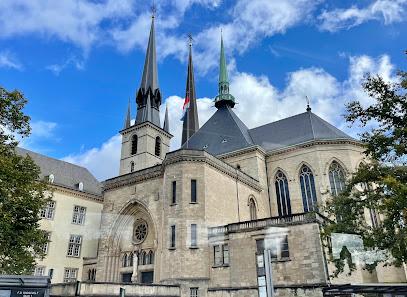
Municipal park of Luxembourg
Discover the Municipal Park of Luxembourg, a tranquil escape in the heart of the city, offering lush greenery and serene landscapes for all visitors.
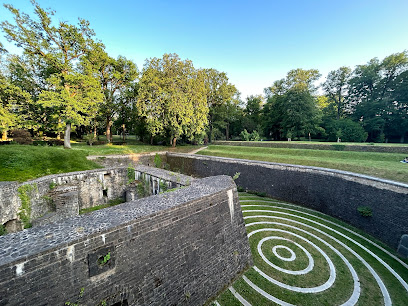
Palais Grand-Ducal
Explore the majestic Palais Grand-Ducal, a historical landmark and the official residence of the Grand Duke, nestled in the heart of Luxembourg City.
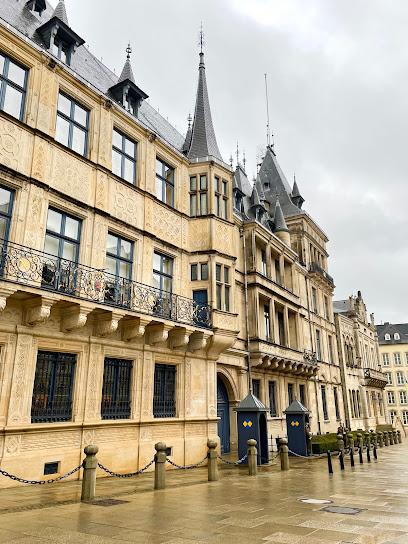
Schiessentümpel Waterfall
Discover the stunning Schiessentümpel Waterfall in Luxembourg's Mullerthal region, a breathtaking natural attraction perfect for nature lovers and photographers.

William Square
Discover the charm and history of Luxembourg at William Square, a vibrant landmark filled with culture and captivating views.
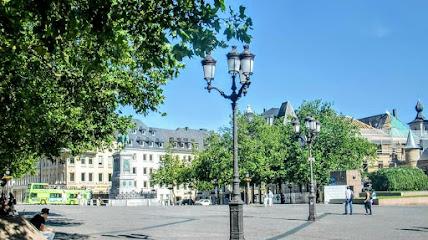
Mudam Museum of Modern Art
Discover contemporary art at the Mudam Museum of Modern Art in Luxembourg, a hub of creativity and innovation surrounded by stunning architecture.
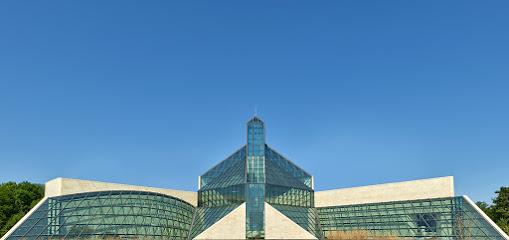
Philharmonie Luxembourg
Discover the architectural masterpiece of Philharmonie Luxembourg, a premier concert hall offering exceptional acoustics and a vibrant cultural experience.
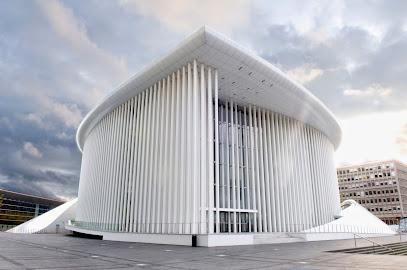
Neumünster Abbey
Experience the rich culture and history at Neumünster Abbey, a vibrant center for art, music, and community in Luxembourg's picturesque Grund district.
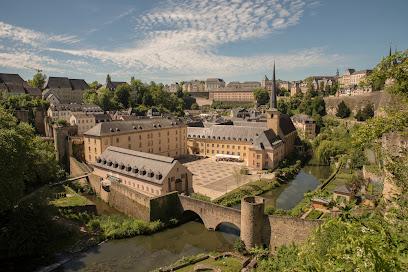
Place de la Constitution
Discover the historic beauty and breathtaking views of Place de la Constitution, a must-visit tourist attraction in Luxembourg City.
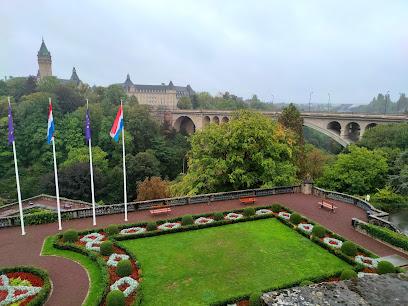
Essential places to dine
Piri Piri Portuguese Restaurant & Bar - Luxembourg Kirchberg
Experience authentic Portuguese cuisine at Piri Piri Restaurant & Bar in Luxembourg's Kirchberg district.
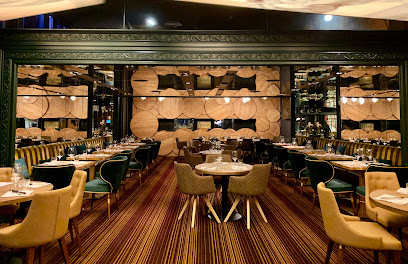
Urban Bar & Restaurant
Discover the vibrant culinary scene at Urban Bar & Restaurant in Luxembourg City – where modern cuisine meets local charm.
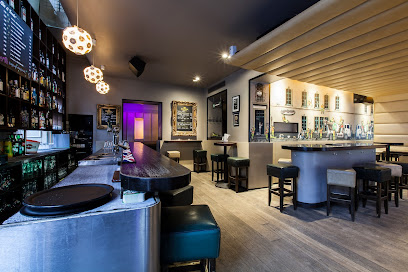
Restaurant Mamacita
Experience vibrant Mexican cuisine at Restaurant Mamacita in Ville Haute, where every dish tells a story of authentic flavors and festive dining.
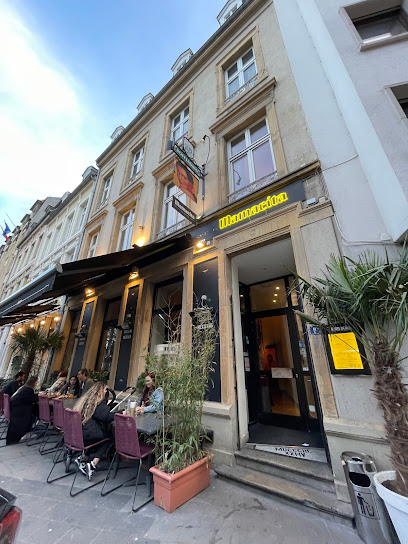
Batucada
Savor authentic Brazilian cuisine at Batucada, where vibrant flavors meet warm hospitality in the heart of Luxembourg.
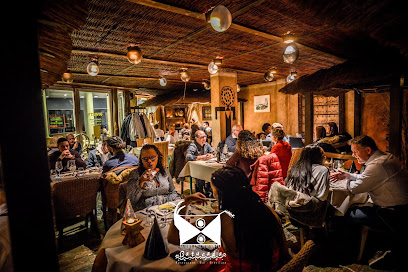
Grand Café
Experience exquisite dining at Grand Café in Ville Haute, where succulent grilled specialties meet elegant ambiance.
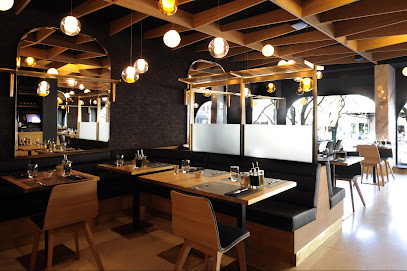
Brasserie du Cercle
Experience the charm of Brasserie du Cercle, where exquisite local flavors meet international cuisine in the heart of Luxembourg City.
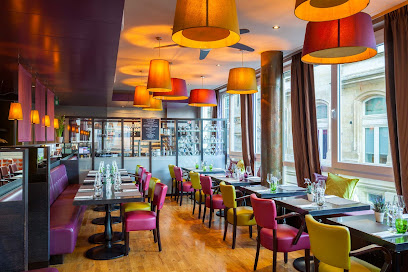
La Boucherie
Experience the best of French cuisine at La Boucherie – a premier chophouse offering exquisite meats and a vibrant atmosphere in the heart of Luxembourg.
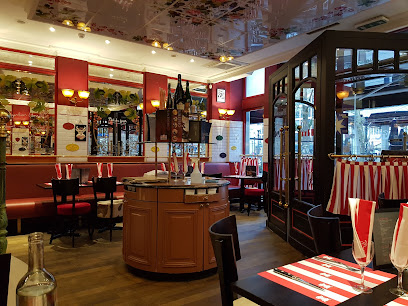
Bazaar Bar and Restaurant
Discover vibrant Lebanese cuisine combined with exhilarating nightlife at Bazaar Bar and Restaurant in Luxembourg.
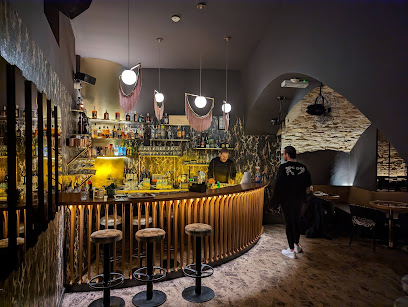
Brasserie Guillaume
Discover Brasserie Guillaume: Luxurious Seafood Dining Experience in the Heart of Luxembourg City.
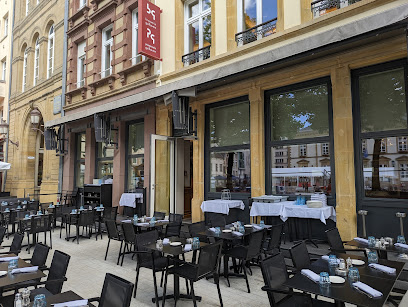
Ambrosia Restaurant
Experience the rich flavors of Greece at Ambrosia Restaurant in Luxembourg – where culinary tradition meets modern elegance.
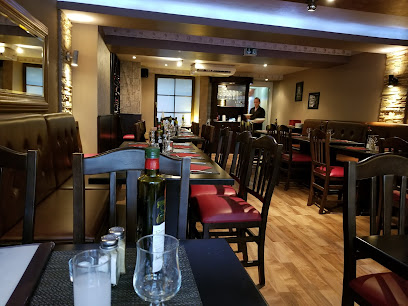
Beet
Discover Beet, Luxembourg's premier vegan restaurant offering fresh, innovative dishes in a cozy atmosphere perfect for all diners.
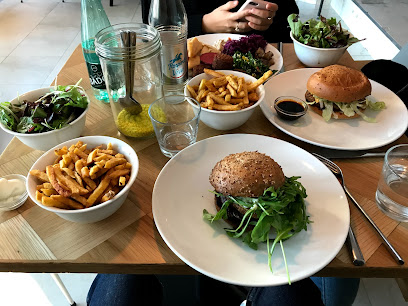
Café-Restaurant Um Dierfgen
Discover the flavors of Luxembourg at Café-Restaurant Um Dierfgen, where tradition meets culinary excellence in an inviting atmosphere.
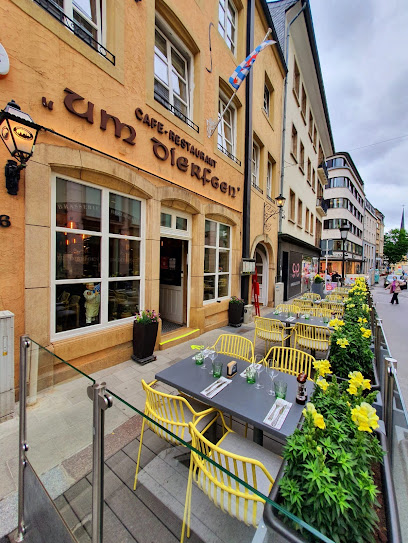
Namaste Restaurant
Savor authentic Nepalese and Indian cuisine in the heart of Luxembourg at Namaste Restaurant.
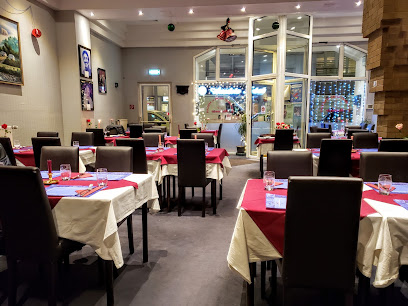
Aka Cité
Discover exquisite sushi craftsmanship at Aka Cité in Luxembourg's Ville Haute, where tradition meets modern dining excellence.
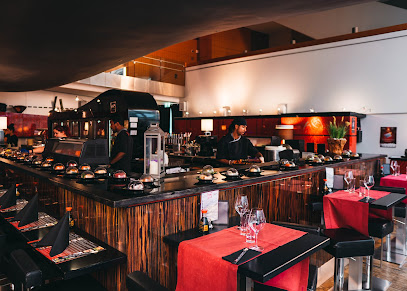
Brasserie La Lorraine
Discover the exquisite flavors of French cuisine at Brasserie La Lorraine in Ville Haute, Luxembourg - where elegance meets exceptional seafood.
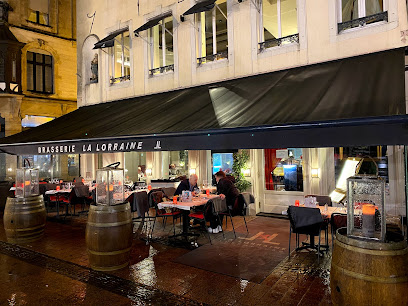
Markets, malls and hidden boutiques
Belle Etoile Shopping Center
Explore the vibrant Belle Etoile Shopping Center in Bertrange, Luxembourg, where shopping, dining, and entertainment come together for an unforgettable experience.
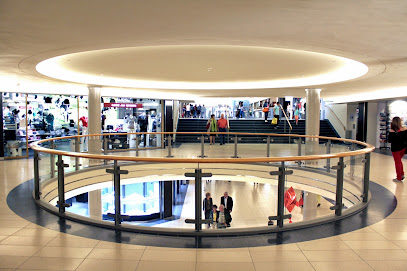
Designer Outlet Luxembourg
Explore Designer Outlet Luxembourg for exclusive deals on top brands, diverse shopping options, and delightful dining experiences in a vibrant setting.
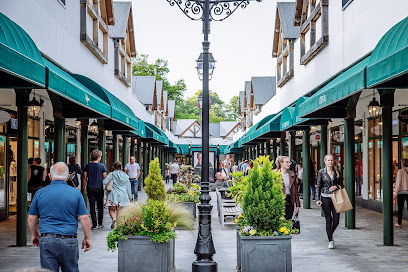
Cloche d'Or Shopping Center
Cloche d'Or Shopping Center: Luxury shopping, diverse dining, and entertainment await you in the heart of Luxembourg.
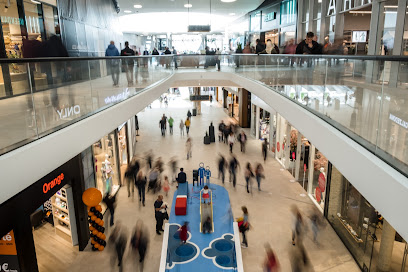
City Concorde
Explore City Concorde, a vibrant shopping destination in Bertrange with diverse stores, dining options, and family-friendly activities for an unforgettable experience.
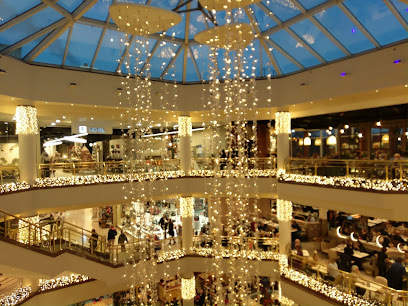
Galeries Lafayette Luxembourg
Explore Galeries Lafayette Luxembourg, a premier shopping destination offering a blend of luxury fashion, beauty products, and unique gifts in the heart of the city.
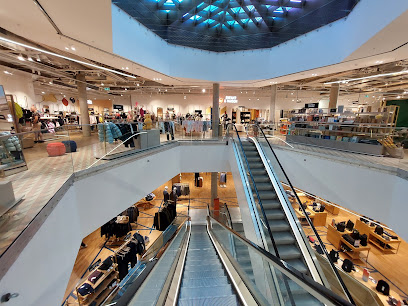
Chocolate House Nathalie Bonn
Experience the finest artisanal chocolates and sweet delights at Chocolate House Nathalie Bonn in Luxembourg, perfect for every chocolate lover.
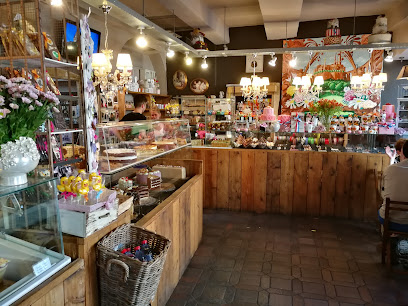
Shopping Center Espace
Explore a vibrant shopping experience at Espace Shopping Center in Beggen, Luxembourg, offering diverse brands, dining, and entertainment.
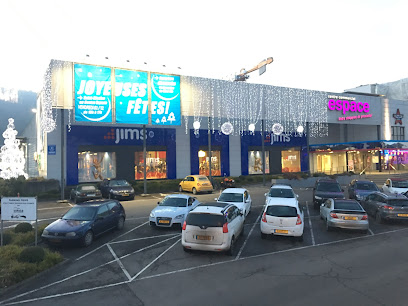
LUSH Cosmetics Luxembourg Grande-Rue
Discover the vibrant world of LUSH Cosmetics in Luxembourg, where beauty meets sustainability in every handmade product.
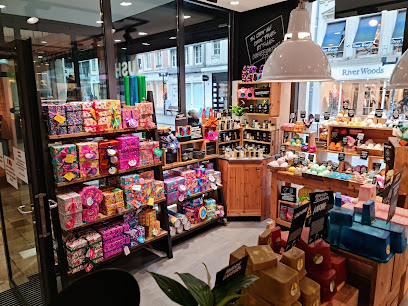
Villeroy & Boch Outlet Luxembourg
Explore the exquisite Villeroy & Boch Outlet in Luxembourg for fine china, elegant cutlery, and unique gifts that capture the essence of luxury.
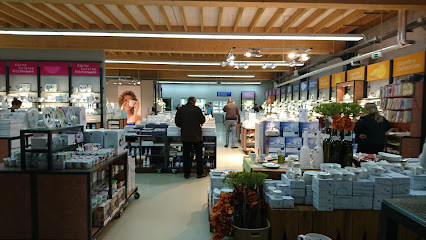
LOUIS VUITTON Luxemburg
Explore the world of luxury at Louis Vuitton Luxembourg, where timeless elegance and exquisite craftsmanship await every discerning shopper.
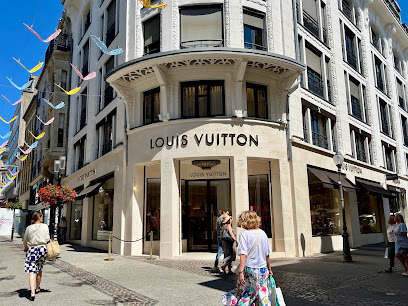
HERMÈS Luxembourg
Explore HERMÈS Luxembourg, where luxury leather goods and timeless elegance await in the heart of the city.
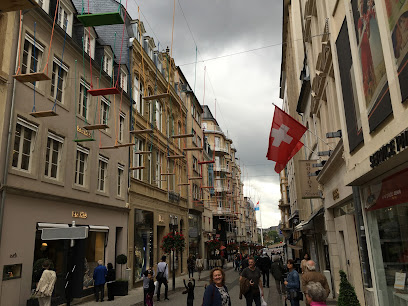
CHANEL LUXEMBOURG
Discover the elegance of Chanel in Luxembourg, a luxurious boutique offering iconic fashion and accessories in a stylish setting.
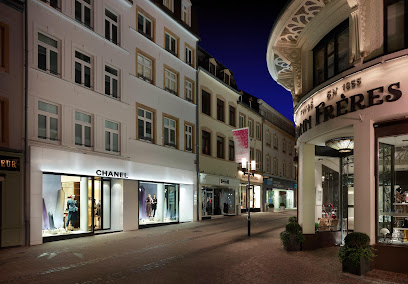
Butlers
Discover unique gifts and home goods at Butlers, a charming gift shop in the heart of Luxembourg's Ville Haute, perfect for tourists looking for local treasures.
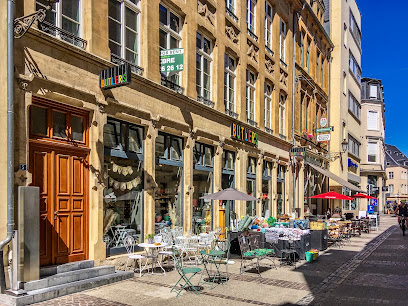
Christian Louboutin Luxembourg
Explore the epitome of luxury footwear and leather goods at Christian Louboutin Luxembourg, where every pair tells a story of elegance and style.
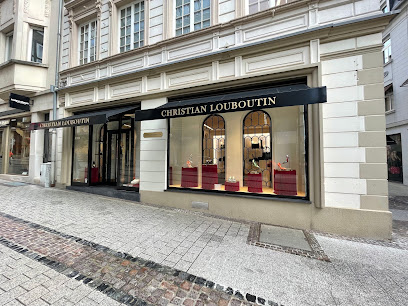
STITCH
Explore STITCH, a stylish boutique in Luxembourg's Ville-Haute, offering unique fashion and accessories for discerning travelers.
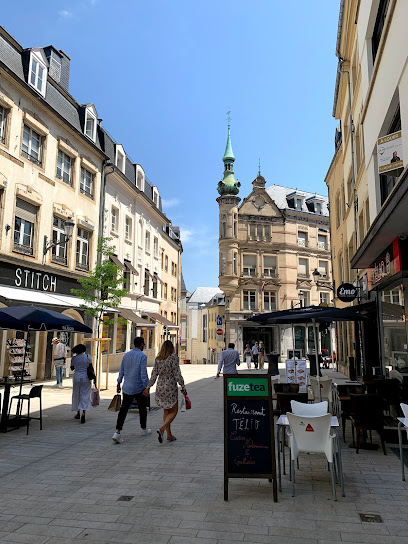
Essential bars & hidden hideouts
Urban Bar & Restaurant
Experience modern dining at Urban Bar & Restaurant in Luxembourg, where local flavors meet a vibrant atmosphere in the heart of Ville Haute.
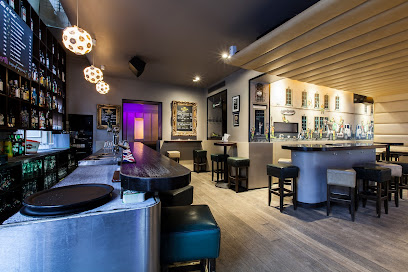
Tube
Experience the lively atmosphere and delicious pinsa at The Tube Bar, a must-visit spot for nightlife in Luxembourg.
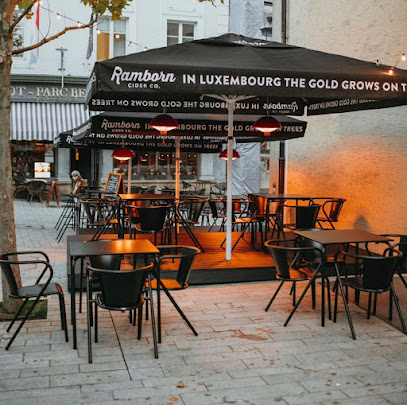
Rock Solid
Experience the vibrant atmosphere of Rock Solid, a top café and bar in Luxembourg, perfect for cocktails, beers, and socializing.
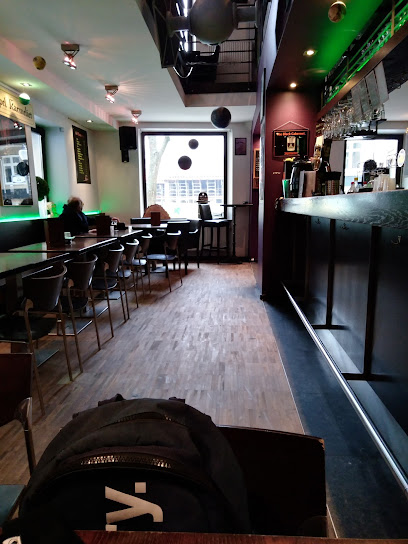
Updown Bar
Discover the lively Updown Bar in Luxembourg, where vibrant nightlife meets a warm Irish pub atmosphere for an unforgettable experience.
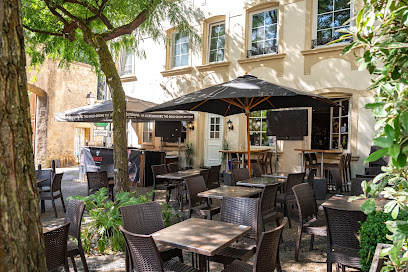
Go Ten Bar & Café
Discover a vibrant fusion of Japanese cuisine and inventive cocktails at Go Ten Bar & Café in the heart of Luxembourg's Ville-Haute.
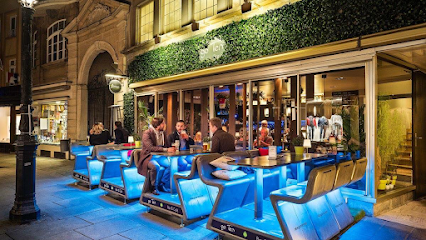
Liquid Bar
Discover the vibrant nightlife of Luxembourg at Liquid Bar, where exceptional drinks and a lively atmosphere await you.
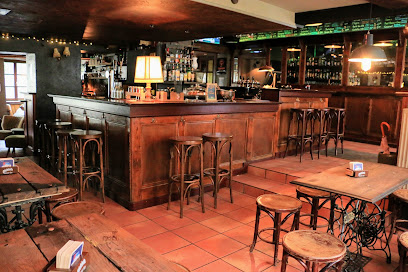
De Gudde Wëllen
Experience the vibrant nightlife of Luxembourg at De Gudde Wëllen, a bar known for its craft beers and inviting atmosphere.
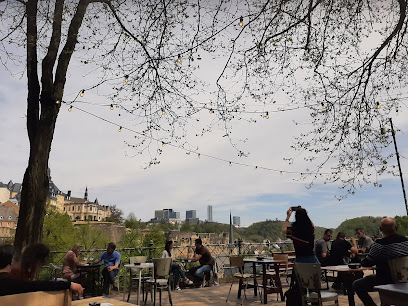
Wëllem
Experience the chic ambiance of Wëllem, a stylish lounge and cocktail bar in Luxembourg's Ville Haute, where relaxation meets sophistication.
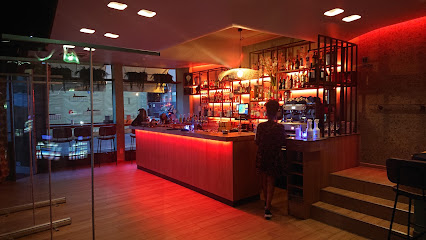
Dipso
Discover the exquisite world of wines at Dipso, Luxembourg's upscale wine bar in Ville Haute, perfect for connoisseurs and casual drinkers alike.
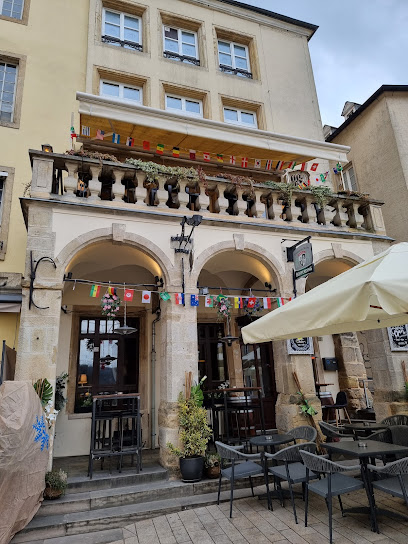
L' Adéquat'
Indulge in exquisite cocktails and savor delicious tapas at L' Adéquat, a premier bar in Luxembourg's vibrant Ville Haute.
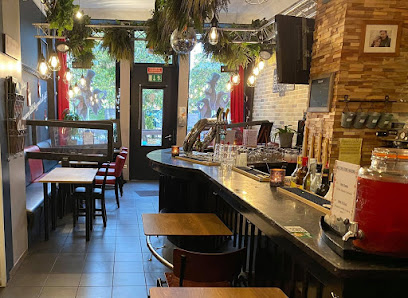
SHAMROCK PUB
Discover the lively atmosphere of Shamrock Pub, a classic bar in Luxembourg's Ville Haute district - perfect for drinks, snacks, and good times.
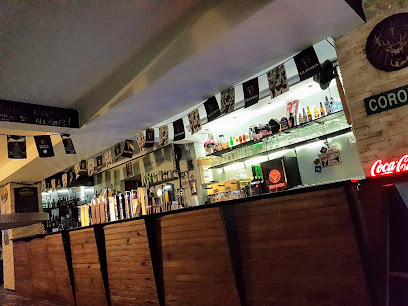
BELLAMY Bar & Cookery
Discover the exquisite flavors and warm ambiance at BELLAMY Bar & Cookery, a culinary gem in the heart of Luxembourg's Ville Haute.
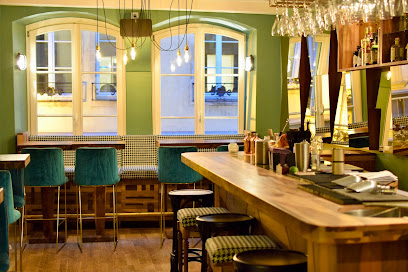
Llama
Discover the vibrant ambiance of Llama, a charming pub in Ville Haute, Luxembourg, perfect for unwinding with local drinks and great company.
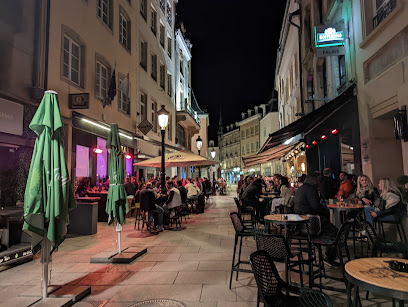
The White Rose Pub
Experience the vibrant atmosphere of The White Rose Pub, a perfect blend of relaxation and entertainment in Luxembourg's Gare district.
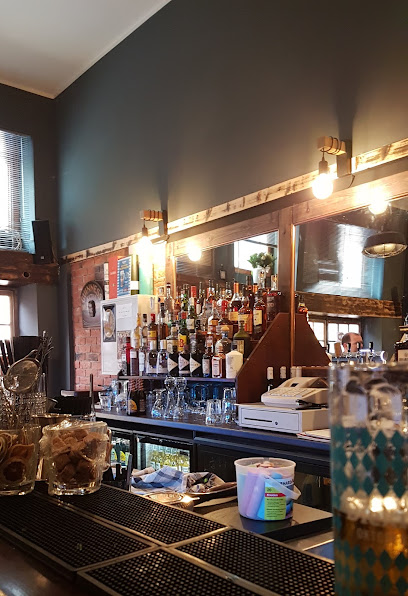
Local Phrases
-
- HelloMoien
[moy-en] - GoodbyeÄddi
[ah-dee] - YesJo
[yo] - NoNee
[nee] - Please/You're welcomeW.êll
[well] - Thank youMerci
[mehr-see] - Excuse me/SorryEntschëllegt
[ent-shellegt] - How are you?Wéi geet et dir?
[way geet et deer] - Fine. And you?Gutt. An dir?
[goot. ahn deer] - Do you speak English?Schwätzt dir Englesch?
[shvets deer eng-lesh] - I don't understandEch verstinn net
[esh verstinn net]
- HelloMoien
-
- I'd like to see the menu, pleaseEch géif gär d'Menü kucken, w.êll
[esh gayf gair d-may-noo kook-en well] - I don't eat meatEch iess keng Fleesch
[esh eess keng flesh] - Cheers!Prost!
[prost] - I would like to pay, pleaseEch géif gär bezuelen, w.êll
[esh gayf gair bez-oo-len well]
- I'd like to see the menu, pleaseEch géif gär d'Menü kucken, w.êll
-
- Help!Hëllef!
[hell-eff] - Go away!Geh ewech!
[gay eh-vek] - Call the Police!Rufft d'Police!
[roof-t dee-pol-eets] - Call a doctor!Rufft e Dokter!
[roof-t eh dawk-ter] - I'm lostEch hunn mech verluer
[esh hun mech ver-loo-er] - I'm illEch sinn krank
[esh seen krahnk]
- Help!Hëllef!
-
- I'd like to buy...Ech géif ... kafen
[esh gayf ... kaf-en] - I'm just lookingEch kuck just
[esh kook yoost] - How much is it?Wéi vill kascht et?
[way vill kasht et] - That's too expensiveDëst ass ze drêch
[dest ass zeh dresh] - Can you lower the price?Kënnt Dir de Präis erausleeën?
[kent deer deh preis eraus-lee-en]
- I'd like to buy...Ech géif ... kafen
-
- What time is it?Wéi spéit ass et?
[way sh-payt ass et] - It's one o'clockEt ass e puer Auer
[et ass e pwer ow-er] - Half past (10)Haalwer (10)
[hal-wer 10] - MorningMuer
[meer] - AfternoonNometten
[no-met-en] - EveningOwend
[oh-vend] - YesterdayGëschter
[gesh-ter] - TodayHaut
[howt] - TomorrowMuer
[meer] - 1Eent
[ent] - 2Zwee
[zway] - 3Drêi
[dresh] - 4Véier
[vire] - 5Fënnef
[fen-nef] - 6Sechs
[zeks] - 7Siwen
[see-wen] - 8Aacht
[akht] - 9Néng
[nang] - 10Zéng
[zang]
- What time is it?Wéi spéit ass et?
-
- Where's a/the...?Wou ass e/d'...?
[woo ass e/d-...] - What's the address?Wat ass d'Adress?
[vat ass d-adress] - Can you show me (on the map)?Kënnt Dir mir dat weisen (op der Kaart)?
[kent deer meer dat vize-en (op der kart)] - When's the next (bus)?Wéini ass de nächste (Bus)?
[way-nee ass de nesh-teh (boos)] - A ticket (to ....)Eng Kaart (no ....)
[eng kart (no)]
- Where's a/the...?Wou ass e/d'...?
History of Luxembourg City
-
Luxembourg City traces its origins to the year 963 when Count Siegfried acquired a rocky promontory, known as the Bock, from the Abbey of St. Maximin in Trier. This strategic location allowed Siegfried to establish a fortified castle, laying the foundation for what would become Luxembourg City. The fortifications and the advantageous position of the Bock allowed the city to grow and thrive over the centuries.
-
During the medieval period, Luxembourg City became a significant political and economic center. The House of Luxembourg emerged as a powerful dynasty, with several members becoming Holy Roman Emperors and Kings of Bohemia. The city's fortifications were continuously expanded, making it one of the strongest fortresses in Europe. This period also saw the growth of trade and commerce, contributing to the city's prosperity.
-
In the 16th century, Luxembourg came under Habsburg rule as part of the Spanish Netherlands. The city's fortifications were further strengthened during this period. When the Spanish Habsburg line ended, Luxembourg became part of the Austrian Netherlands in 1714. The city's strategic importance continued to grow, and it played a key role in the military conflicts of the time.
-
During the Napoleonic Wars, Luxembourg was occupied by French forces. After Napoleon's defeat, the 1815 Congress of Vienna established the Grand Duchy of Luxembourg and placed it under the personal union of the Dutch king. Luxembourg City was designated a federal fortress of the German Confederation, leading to further fortification and military significance.
-
The Treaty of London in 1867 was a pivotal moment in Luxembourg City's history. The treaty guaranteed Luxembourg's neutrality and led to the dismantling of the city's fortifications. This transformation allowed the city to expand and modernize, paving the way for its development into a thriving cultural and economic hub.
-
Luxembourg City was occupied by German forces during World War II. The city played a significant role in the Battle of the Bulge, one of the last major German offensives on the Western Front. Luxembourg was liberated by Allied forces in 1944, and the city's resilience and recovery in the post-war period are a testament to its enduring spirit.
-
In the post-war era, Luxembourg City became one of the de facto capitals of the European Union. It hosts several key EU institutions, including the Court of Justice of the European Union, the European Investment Bank, and parts of the European Commission. This status has transformed Luxembourg into a cosmopolitan city, blending its rich history with a dynamic modern identity.
Luxembourg City Essentials
-
Luxembourg City is well-connected by air, rail, and road. Luxembourg Airport (LUX) is the main international gateway, located about 6 kilometers from the city center. Major airlines offer direct flights from various European cities. The central train station, Gare de Luxembourg, is a hub for international and domestic trains, with regular services to neighboring countries. For those traveling by car, Luxembourg City is accessible via several major highways, including the A1, A3, A4, and A6.
-
Luxembourg City offers an efficient public transport system, including buses, trams, and trains. Public transport within the city is free of charge. Taxis are readily available and can be hailed on the street or booked in advance. Cycling is also a popular mode of transport, with numerous bike-sharing stations available. Car rentals are an option for exploring the surrounding areas, but parking can be challenging in the city center.
-
The official currency of Luxembourg is the Euro (EUR). Credit and debit cards are widely accepted, especially in hotels, restaurants, and shops. ATMs are plentiful, and you can withdraw cash using international cards. It is advisable to carry some cash for smaller establishments and markets. Contactless payment methods are also commonly used.
-
Luxembourg City is generally very safe for tourists. However, like any city, it is wise to take standard precautions. Avoid leaving personal belongings unattended and be cautious in crowded areas. While there are no specific high-crime areas targeting tourists, it is best to stay vigilant in the Gare area, especially at night.
-
In case of emergency, dial 112 for immediate assistance, which connects you to police, fire, and medical services. The main hospital, Centre Hospitalier de Luxembourg, is equipped to handle emergencies. Pharmacies are widely available and offer over-the-counter medications. It is recommended to have travel insurance that covers medical emergencies.
-
Fashion: Do dress smart-casual, especially when dining out. Avoid overly casual or revealing clothing in upscale areas. Religion: Do respect local customs and religious sites. Remove hats in churches. Public Transport: Do offer your seat to elderly passengers. Don't eat or drink on public transport. Greetings: Do greet people with a firm handshake. A friendly 'Bonjour' or 'Moien' goes a long way. Eating & Drinking: Do try local dishes like Judd mat Gaardebounen (smoked pork with beans). Don't rush meals; enjoy the leisurely dining pace.
-
To experience Luxembourg City like a local, visit the Grund district for its charming streets and local eateries. Explore the weekly markets at Place Guillaume II for fresh produce and Luxembourgish specialties. Engage with locals, who are often multilingual and happy to share insights about their city. Don’t miss the Bock Casemates, a network of tunnels offering a glimpse into the city’s history.
Trending Landmark in Luxembourg City
-
Bock Casemates
-
Pont Adolphe
-
Panoramic Elevator of the Pfaffenthal
-
Municipal park of Luxembourg
-
Cathédrale Notre-Dame
-
Palais Grand-Ducal
-
William Square
-
Monument of Remembrance
-
Place de la Constitution
-
Neumünster Abbey
-
Fort Thüngen
-
National Art and History Museum
-
La Passerelle
-
Luxembourg City History Museum
-
Luxembourg City Tourist Office
Nearby Cities to Luxembourg City
-
Things To Do in Dudelange
-
Things To Do in Remich
-
Things To Do in Grevenmacher
-
Things To Do in Arlon
-
Things To Do in Diekirch
-
Things To Do in Echternach
-
Things To Do in Vianden
-
Things To Do in Wiltz
-
Things To Do in Clervaux
-
Things To Do in La Roche-en-Ardenne
-
Things To Do in Durbuy
-
Things To Do in Spa
-
Things To Do in Nancy
-
Things To Do in Dinant
-
Things To Do in Liege
















